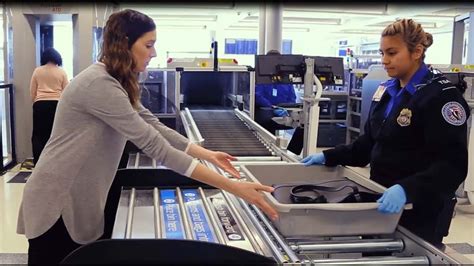
A traveler recounts falling victim to a common tourist scam in Greece involving inflated seafood prices, highlighting the importance of vigilance and price awareness for visitors. The incident serves as a cautionary tale, urging tourists to confirm prices before ordering to avoid unexpected and exorbitant charges.
Greek Seafood Scam: A Tourist’s Cautionary Tale
A recent travel experience in Greece has brought to light a persistent issue affecting tourists: inflated pricing, particularly in seafood restaurants. A traveler, writing for Yahoo! Life, detailed how they were caught off guard by unexpectedly high prices for a seafood dish, turning a pleasant dining experience into a costly lesson. This incident underscores the need for tourists to exercise caution and proactively inquire about prices before committing to an order.
The traveler, eager to savor authentic Greek cuisine, opted for a seafood dish at a restaurant. While the meal itself was enjoyable, the final bill revealed a shockingly high price that far exceeded expectations. The traveler noted, “The food tasted good, the service was fine. But when the bill came, I nearly choked on my water. The price of the fish was more than double what I would have expected to pay.” This experience is not isolated and reflects a recurring problem where some establishments exploit tourists’ unfamiliarity with local pricing norms.
The scam often involves restaurants offering fresh seafood without clearly stating the price per kilogram or portion. Unsuspecting tourists, enticed by the promise of a delicious meal, order without fully understanding the potential cost. When the bill arrives, they are presented with a significantly higher charge than anticipated, leaving them feeling cheated and frustrated.
The traveler emphasizes that they should have been more proactive in confirming the price before ordering. “I should have asked how much the fish cost before ordering it,” they admitted. “That’s the cardinal rule of traveling, and I broke it.” This simple yet crucial step can prevent similar situations and safeguard tourists from falling victim to price gouging.
The incident serves as a broader warning to tourists visiting Greece and other popular destinations. It highlights the importance of being aware of potential scams and taking preventative measures to protect oneself from exploitation.
How the Scam Works: A Detailed Look
The seafood scam in Greece operates on a few key principles:
-
Ambiguity in Pricing: Restaurants often display fresh seafood without clear price tags or only indicate the price per kilogram. This lack of transparency can be confusing for tourists unfamiliar with the weight of typical portions.
-
Upselling and Suggestion: Servers may encourage tourists to try specific dishes, particularly fresh seafood, without explicitly mentioning the price. This tactic can create a sense of obligation and make it more difficult for tourists to inquire about costs.
-
Exploiting Ignorance: Tourists are often unaware of the prevailing prices for seafood in the area. This lack of knowledge makes them vulnerable to inflated charges.
-
Pressure and Embarrassment: Once the meal is consumed, some tourists feel pressured to pay the bill without complaint, even if they suspect they have been overcharged. They may be reluctant to cause a scene or fear negative repercussions.
-
Hidden Charges: Some establishments may add hidden charges to the bill, such as excessive service fees or inflated prices for side dishes and drinks.
The combination of these factors creates a situation where tourists are easily taken advantage of, resulting in a negative and costly experience.
Preventative Measures: Protecting Yourself from Scams
To avoid falling victim to the seafood scam or similar tourist traps, travelers should adopt the following preventative measures:
-
Always Ask for the Price: Before ordering any item, especially fresh seafood, explicitly ask for the price per portion or kilogram. Do not assume that the price is reasonable or comparable to prices in your home country. If the price seems unusually high, consider ordering something else.
-
Confirm the Price in Writing: If possible, ask the server to write down the price on the menu or a separate piece of paper. This provides a clear record of the agreed-upon price and can be helpful in case of a dispute.
-
Be Wary of Upselling: Be cautious of servers who aggressively promote specific dishes or encourage you to order more than you need. They may be trying to inflate the bill.
-
Check the Bill Carefully: Before paying the bill, scrutinize every item and ensure that the prices match what you were quoted. Look for any hidden charges or discrepancies.
-
Use Reputable Establishments: Choose restaurants that have positive reviews and are recommended by reliable sources. Avoid establishments that seem overly eager to attract tourists or lack clear pricing information.
-
Trust Your Gut: If something feels off or too good to be true, trust your instincts. It’s better to err on the side of caution and avoid a potentially negative experience.
-
Know Local Prices: Research the average prices for common food items in the area you are visiting. This will help you identify unusually high prices and avoid being overcharged.
-
Pay with a Credit Card: Using a credit card provides an additional layer of protection. If you are charged an incorrect amount, you can dispute the charge with your credit card company.
-
Document Everything: Keep records of menus, receipts, and any other relevant information. This documentation can be helpful if you need to file a complaint or dispute a charge.
-
Speak Up: If you believe you have been scammed, don’t hesitate to speak up. Politely but firmly express your concerns to the restaurant manager or staff. If you are unable to resolve the issue, consider reporting the incident to the local tourist authorities or consumer protection agencies.
Beyond Seafood: Other Common Tourist Traps in Greece
While the seafood scam is a prevalent issue, tourists in Greece should also be aware of other common scams and tourist traps:
-
Taxi Scams: Unlicensed taxi drivers may overcharge tourists or take longer routes to inflate the fare. Always use licensed taxis and ensure that the meter is running. Negotiate the fare in advance if the taxi does not have a meter.
-
Souvenir Scams: Some souvenir shops may sell low-quality or fake products at inflated prices. Be cautious of vendors who pressure you to buy items or offer overly aggressive discounts.
-
Rental Car Scams: Rental car companies may try to charge you for pre-existing damage or add hidden fees to the rental agreement. Thoroughly inspect the car before driving it and carefully review the rental contract. Take photos or videos of any existing damage.
-
ATM Scams: Some ATMs may charge excessive fees or use unfavorable exchange rates. Use ATMs located at reputable banks and be aware of the fees before withdrawing money.
-
Fake Tickets: Be wary of individuals selling tickets to tourist attractions or events on the street. These tickets may be fake or invalid. Purchase tickets from authorized vendors only.
-
“Free” Gift Scams: Individuals may offer you a “free” gift or bracelet and then demand payment. Politely decline any unsolicited gifts.
-
Restaurant Bill Padding: Some restaurants may add items to the bill that you did not order or inflate the prices of drinks and side dishes. Carefully review the bill before paying.
-
Begging Scams: Organized groups of beggars may target tourists. Be cautious of individuals who approach you with sob stories or try to pressure you into giving them money.
-
Pickpocketing: Pickpockets operate in crowded tourist areas. Be aware of your surroundings and keep your valuables secure.
-
Internet Scams: Be cautious of free Wi-Fi networks that may be insecure. Avoid entering sensitive information, such as passwords or credit card numbers, on public Wi-Fi networks.
The Importance of Tourist Education
The prevalence of tourist scams in Greece highlights the importance of tourist education. By providing tourists with accurate information and practical advice, they can be better equipped to protect themselves from exploitation and have a more positive travel experience.
Tourist authorities, travel agencies, and online resources should play a role in educating tourists about potential scams and preventative measures. This education should include information on common scams, how they operate, and how to avoid them.
In addition, tourists should be encouraged to share their experiences with others and report any incidents of fraud or exploitation. This information can help to identify problem areas and inform future prevention efforts.
The Impact on the Greek Tourism Industry
The persistence of tourist scams can have a negative impact on the Greek tourism industry. While the vast majority of businesses in Greece are honest and reputable, the actions of a few can tarnish the reputation of the entire country.
Tourists who have been scammed are likely to share their negative experiences with others, discouraging potential visitors from traveling to Greece. This can lead to a decline in tourism revenue and damage the country’s image as a desirable travel destination.
To protect the tourism industry and maintain its reputation, the Greek government and tourism authorities must take steps to crack down on tourist scams and ensure that businesses operate ethically and transparently.
Government and Industry Response
The Greek government and tourism industry are aware of the issue of tourist scams and have taken some steps to address it. These steps include:
-
Increased Enforcement: Authorities have increased enforcement efforts to identify and prosecute businesses that engage in fraudulent practices.
-
Consumer Protection Laws: Greece has consumer protection laws in place to protect tourists from unfair business practices.
-
Tourist Information Centers: Tourist information centers provide tourists with information and advice on how to avoid scams and other potential problems.
-
Awareness Campaigns: The Greek National Tourism Organization (GNTO) has launched awareness campaigns to educate tourists about potential scams and preventative measures.
-
Certification Programs: Some industry associations have implemented certification programs to recognize businesses that adhere to ethical standards and provide high-quality service.
However, more needs to be done to effectively combat tourist scams and protect visitors from exploitation. This requires a coordinated effort involving government agencies, industry associations, and individual businesses.
Long-Term Solutions
To address the issue of tourist scams in Greece on a long-term basis, the following solutions are recommended:
-
Increased Transparency: Businesses should be required to display clear and accurate pricing information, particularly for fresh seafood and other items that are commonly subject to price gouging.
-
Enhanced Enforcement: Authorities should increase enforcement efforts and impose stricter penalties on businesses that engage in fraudulent practices.
-
Public Awareness Campaigns: The government and tourism industry should launch comprehensive public awareness campaigns to educate tourists about potential scams and preventative measures.
-
Industry Self-Regulation: Industry associations should implement and enforce codes of conduct to ensure that businesses operate ethically and transparently.
-
Customer Feedback Mechanisms: Establish effective mechanisms for tourists to provide feedback and report incidents of fraud or exploitation.
-
Collaboration and Coordination: Foster collaboration and coordination among government agencies, industry associations, and tourist organizations to address the issue of tourist scams effectively.
-
Education and Training: Provide education and training to tourism industry employees on ethical business practices and customer service.
By implementing these solutions, Greece can create a more welcoming and trustworthy environment for tourists, ensuring that they have a positive and memorable travel experience.
The Personal Impact
Beyond the financial loss, being scammed can leave a lasting emotional impact on tourists. It can erode trust, create feelings of vulnerability, and damage the overall perception of a destination.
The traveler who shared their experience emphasized the feeling of being taken advantage of. While the amount of money lost was not insignificant, the sense of betrayal and the realization that they had been deliberately deceived were even more upsetting.
This personal impact underscores the importance of preventing tourist scams and creating a travel environment where visitors feel safe, respected, and valued.
Conclusion: A Call for Vigilance and Reform
The story of the traveler who fell victim to the seafood scam in Greece serves as a powerful reminder of the need for vigilance and awareness. By taking preventative measures and being informed about potential scams, tourists can protect themselves from exploitation and have a more positive travel experience.
At the same time, the Greek government and tourism industry must take steps to address the issue of tourist scams and create a more transparent and ethical business environment. This requires a coordinated effort involving increased enforcement, public awareness campaigns, industry self-regulation, and customer feedback mechanisms.
Only through a concerted effort can Greece maintain its reputation as a desirable travel destination and ensure that visitors have a positive and memorable experience.
Frequently Asked Questions (FAQ)
-
What is the most common tourist scam in Greece?
One of the most common scams involves inflated prices for fresh seafood in restaurants. Restaurants may offer fresh seafood without clearly stating the price per kilogram or portion, leading to unexpected and exorbitant charges on the final bill. Other common scams include taxi overcharging, souvenir scams, rental car scams, and ATM scams.
-
How can I avoid being scammed in a Greek restaurant?
To avoid being scammed in a Greek restaurant, always ask for the price of any item before ordering, especially fresh seafood. Confirm the price in writing if possible. Be wary of servers who aggressively promote specific dishes. Check the bill carefully for any discrepancies or hidden charges. Choose reputable establishments with positive reviews.
-
What should I do if I think I have been scammed in Greece?
If you believe you have been scammed, politely but firmly express your concerns to the restaurant manager or staff. If you are unable to resolve the issue, consider reporting the incident to the local tourist authorities, consumer protection agencies, or your credit card company. Document everything, including menus, receipts, and any other relevant information.
-
Are all restaurants in Greece dishonest?
No, the vast majority of restaurants in Greece are honest and reputable. However, like any popular tourist destination, there are some establishments that may try to take advantage of unsuspecting visitors. By being aware of potential scams and taking preventative measures, you can minimize your risk of being exploited.
-
What is the Greek government doing to combat tourist scams?
The Greek government and tourism industry are aware of the issue of tourist scams and have taken some steps to address it, including increased enforcement efforts, consumer protection laws, tourist information centers, awareness campaigns, and certification programs. However, more needs to be done to effectively combat tourist scams and protect visitors from exploitation, including increased transparency, stricter penalties, and enhanced customer feedback mechanisms.









